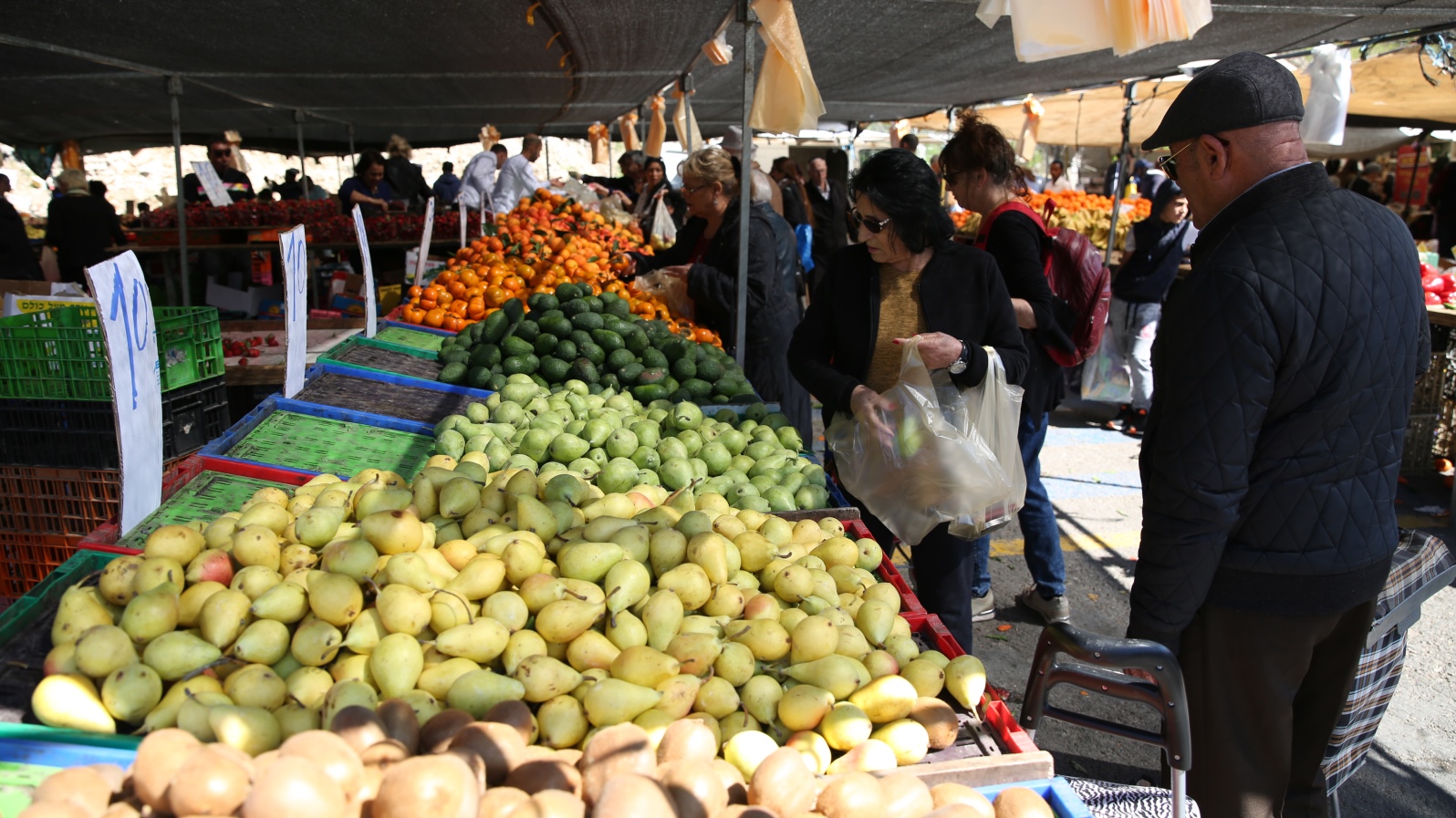Getting over the initial culture shock of a new country isn’t always easy. That’s why we’ve collected the best tips from locals to help you rise above the confusion and get on with a terrific trip.
Whether it’s your first Israel excursion or your 10th, these insider travel tips will help you get the absolute most out of your stay in Israel.
- Invite yourself to dinner

Interacting with Israelis on the street won’t necessarily leave you with the best impression. But break bread with them in their own home, and you will get a whole new perspective. Plus, you get the added bonus of engaging them in conversation about whatever you like. Israelis are hard to offend, so money, politics, and religion are often not off the table. Or you can keep it light and ask for recommendations on favorite spots/activities and local culture.
Meal-sharing services and experiences, such as Nat Flat Supper Club, Betzavta and EatWith make it easy to get on the inside and create lasting friendships with Israelis.
- Get to know Israel’s back country
While it’s true that Israel is much, much more than just desert and camels, it would be a real shame to miss out on the vast and breathtaking nature of Israel’s deep south. However, the many hiking trails aren’t always safe or easy to find and navigate on your own.
Enter a new trend of affordable group guiding and tour services like Abraham Tours and Finjan Travel that will allow you to back-country trek and experience the inspirational Israeli nature in the safest way possible, while providing long-lasting memories of getting down and dirty. You might even see a camel or two (which we still think is awesome!).
- Hit the supermarket
Headed north or south for the weekend? It’s a good idea to hit up the supermarket for some snacks beforehand. Finding restaurants in more remote locations such as the Dead Sea area and the Negev desert on the weekend (Friday evening and Saturday) may prove difficult, and you’ll want to be prepared just in case.
More pluses associated with a good supermarket stock-up? Consider buying six large water bottles for the price of one in a kiosk (make sure you drink a lot of water while in Israel!); foodie gifts to take home to family and friends–such as local boutique wine or creamy Israeli tahini; or creating your own “snack challenge” using hysterically funny products like falafel-flavored Doritos and chocolate-covered Bugles. I mean, come on!
Because most Israeli supermarkets require a “deposit” of 5 shekels (less than $1.50) to release a grocery cart, make sure to bring some 5-shekel coins along. At the end you will get reunited with your money.
- Know when and how to use public transportation

Israel’s public-transport system is one of the most functional and modern in the world, but there are a few caveats you should know before hopping on the bus.
Israel’s buses and trains are set up in a way that encourages communication among passengers (or at least we like to think of it that way). It’s common practice to ask others when the bus passed/which line to take/how to get where. These days, with most Israelis using public-transit app Moovit, you should be able to get accurate arrival info from a quick check on anyone’s smartphone.
Other classic Israeli moves? Sit behind the bus driver and ask for a heads-up when approaching your destination. This is common practice, and nothing to be ashamed of. If you’re too shy, many Israeli buses have automatic announcements of the coming stop.
Try to avoid public transport on early Sunday mornings and late Thursday afternoons, when soldiers are going home for the weekend or returning to base. Soldiers ride public transport for free, so you might find yourself without a place to sit in a sea of young Israelis and their M16s (unloaded and in safety mode, in case you were wondering).
Most Israeli transportation stops Friday afternoon and resumes on Saturday evening. Make sure to figure out the first/last bus before heading out, by checking online sites such as Egged Buses or Israel Railways, both which can be browsed in English.
Once on the bus and train, you’ll be happy to find that most have free Wi-Fi connections. Many of them also have plugs to charge your phone or laptop.
- Crowdsource your trip
Asksix Israelis a question and you will get sixdifferent opinions, which usually wouldn’t be such a great thing unless you are looking to crowdsource. Thanks to Facebook groups such as Secret Jerusalem, Restaurant Club Israel and LoveloveIsrael-Tried & Tested, you can get real-time opinions from the local English-speaking community on literally everything, from how things work to where to eat and what to do while travelling around.
- Get the right equipment

Many tourists walk around sans personal Internet connection because they fear that getting an Israeli SIM card installed will be expensive, a scam, or both. Both of these assumptions are vastly untrue. For around $20 at a reputable shop, you can get a reusable SIM that will allow you to check emails, search online maps and stay in touch with guides, friends or your Airbnb host through texting apps like WhatsApp. You could even play the field from the road and get a date with an Israeli on Tinder, because, yes, we have that too!
Other items that will get you through your trip like a real Israeli are the ever-popular Shoresh-style sandals, good for walking, hiking (both wet and dry), and blending in with the crowd.
For hikers, picking up a camelbak, or similar water dispenser from your local travel store before flying out could be a literal lifesaver. These ingenious packs allow you easy access to several liters of water while you walk, hike or bike in the hot sun.
And one more thing: Carrying a roll of toilet paper and some hand sanitizer can come in handy whether you’re checking out national parks, sites, or walking in the city, because you just never know.
- Take a seat and order a cup of (local) coffee

Israel’s European influence has made restaurant-going here a leisurely experience. You can literally take your time and sit in a café for hours, enjoying the scenery and people watching while you sip your latte.
Speaking of lattes, here is a cheat sheet to Israeli coffees. An espresso-based coffee culture means good old American drip coffee will most likely be your least desirable option, but with coffees like these, you’ll want to switch up your coffee (or tea) routine anyhow.
Hafuch: Literally “upside-down,”referring to the most common cup of joe you’ll find in an Israeli café, made up of espresso coffee topped with warm foamy milk.
Café shachor: Otherwise known as black coffee, Turkish or Arabic coffee, or as Israelis refer to it, botz (mud). With so many names, you know this ultra-strong coffee, often laced with lemony cardamom, has got to be widely appreciated. Cooked on a stovetop and served in small glass cups or shot-sized glasses, café shachor can also be offered on the house following most hummus or Arab restaurant meals. Just don’t drink the very bottom, which is where the unfiltered grounds settle.
Iced coffee (ice café): A blended sweetened coffee drink similar to aFrappuccino.
Cold coffee (café kar)– What Americans know as iced-coffee — strong-brewed coffee with or without milk or cream and sugar, poured over ice.
Te nana (minttea): The quintessential Israeli drink, comprised of fresh Mediterranean spearmint steeped in hot water, with or without the accompaniment of a black teabag.
- Specialize your tour with experience-based travel
These days it is easier than ever to tailor your tour to your specific interests, through a boutique tourism agency or on your own. There is no shortage of food and alcohol tours and experiences, arts and crafts workshops, eco-friendly travel, and fun volunteer options that make working on a kibbutz seem passé. Here are a few of our favorite options for a trip that is anything but standard:
Goats in the Wind Wine and Cheese Organic Farm, One Day-Day Long Volunteer Opportunities and WWOOF, working on an organic farm in return for free room and board.
- Know when and how much to tip, and what to bring hosts
To make a long story short, Israeli cab drivers typically are NOT given tips, while waiters are typically tipped 10 to 12 percent.
When it comes to hostess gifts, something small or useful is often appreciated. Boutique Israeli wine or a bakery treat are always good choices, but items that are expensive or hard to find in Israel, but perhaps not in your home country, such as cosmetics and perfumes, make an excellent token gift. If all else fails, you can always pick up flowers, which are sold by roadside vendors on Friday mornings just for this purpose.
- Hit the fruit store or market

When in Rome, right? A cornerstone of the Israeli lifestyle is eating local, fresh, seasonal produce without trying (it’s just what’s available here). When traveling around the Holy Land, hitting the local produce stand or open-air market will keep you from getting bogged down by heavy restaurant meals.
Trying new and unusual fruits at the peak of their freshness and seasonality can be a life-changing experience. Get in there, smell the fresh herbs, and ask the grocer about his stock –including Israeli cherry tomato, pepper, watermelon and date varieties grown in the desert, or other innovative initiatives such as Bio-Bee Strawberries, and open up a whole new world of agricultural knowledge.

















